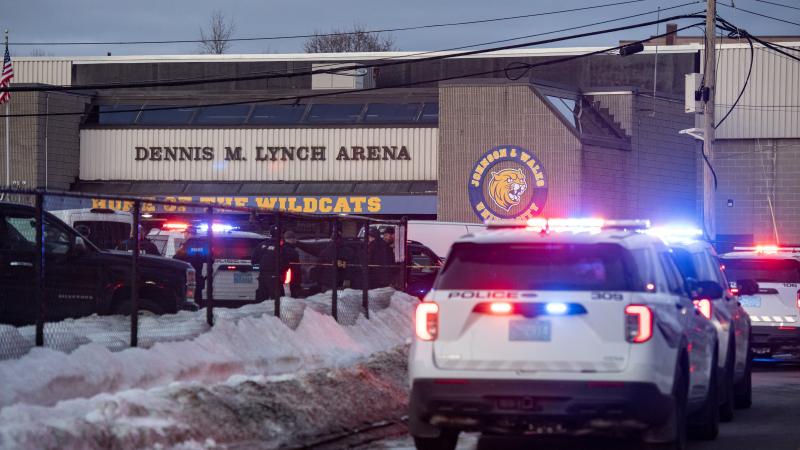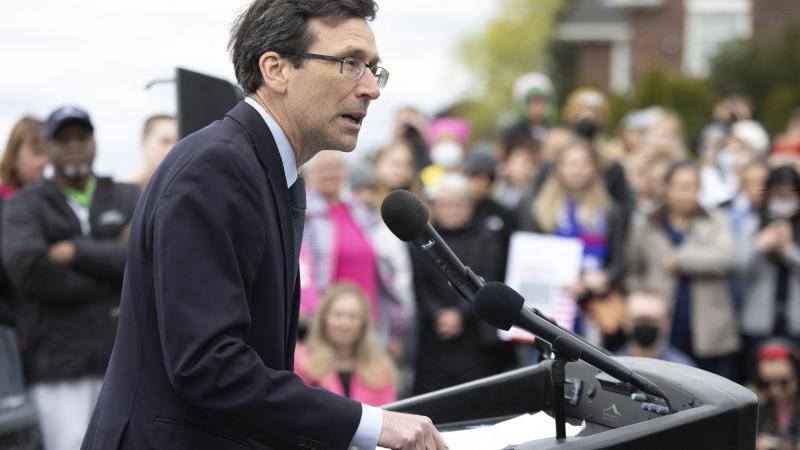Narcan could be required by California in gas stations, schools following rise in fentanyl deaths
California saw over 6,800 opioid-related overdose deaths in 2021, up from more than 5,500 opioid-related overdose deaths reported in 2020.
California could move to require opioid antagonist kits, which can be used to reverse the effects of an opioid overdose, in public spaces like libraries, gas stations and schools under new measures introduced by California lawmakers this week.
California saw over 6,800 opioid-related overdose deaths in 2021, up from more than 5,500 opioid-related overdose deaths reported in 2020, according to the state’s Overdose Surveillance Dashboard. The state estimates 5,722 overdose deaths in California are attributable to fentanyl – a synthetic opioid that is 50-100 times stronger than morphine, according to the U.S. Drug Enforcement Administration.
Fentanyl deaths among youth have soared in California in recent years, shooting up more than fourfold among teens ages 15 to 19 and nearly sevenfold among 20-to-24-year-olds from 2018 to 2021, according to an analysis by the Mercury News.
The rise in overdose deaths has caught the attention of several California lawmakers, who in the first week of the 2023-2024 legislative session, introduced several new bills requiring opioid antagonist kits, like Narcan, to be available in public spaces in the event of an overdose.
One measure, Assembly Bill 24 by Assemblyman Matt Haney, D-San Francisco, would require a person who owns or manages a bar, gas station, public library or single-room occupancy hotel in a county experiencing an opioid overdose crisis to post an opioid antagonist kit and instructional poster in an area accessible to employees. Managers would also be required to restock the kit after each use and could face a fine of $1,000 or jail time for violating the provisions in the bill.
The bill would also require the state’s Department of Public Health to provide the kits free of charge, but there is no cost estimate for the bill available at this time.
Two other bills – one introduced by a Republican and the other introduced by a Democrat – would require schools to have Narcan kits available in the event of an opioid overdose and provide training to staff on how to use opioid antagonist kits.
Assembly Bill 19, introduced by Assemblyman Joe Patterson, R-Rocklin, would require each public school in California to maintain at least two doses of an opioid antagonist in case of an overdose.
Though an official cost analysis of the bill is yet to be completed, Patterson estimates requiring two doses of Narcan at each of the 10,000 public schools in California would initially cost the state “less than 1.5 million for [the] most expensive dose.”
“In [the legislature], this is the definition of ‘budget dust,” Patterson tweeted on Friday. “Hand sanitizer costs more.”
Another bill introduced this week by Senator Dave Cortese, D-San Jose, would require schools to include strategies for the “prevention and treatment of opioid overdoses” within their school safety plans and require new training for school staff on the use of opioid antagonists.
The bill was inspired by a workgroup in Santa Clara County that was formed to raise awareness about the dangers of fentanyl and partners with the Santa Clara County Office of Education to provide training to school staff.
Santa Clara County Supervisor Cindy Chavez, a member of the working group, told reporters last month that Narcan was used by staff members at two different schools earlier this year to save the lives of two teens, as previously reported by The Center Square.
“We have a crisis of fentanyl poising and death among our youth that we must meet with urgency and the sweeping action it requires,” Cortese said in a statement. “I am committed to working with our educational partners and community to reverse the alarming rise in fentanyl overdoses and deaths. Through universal preventative measures, we can save lives.”












